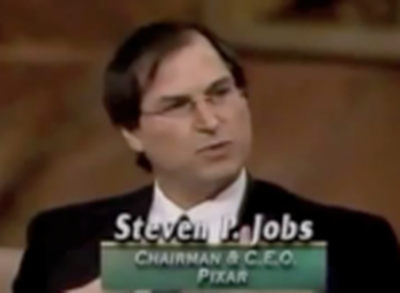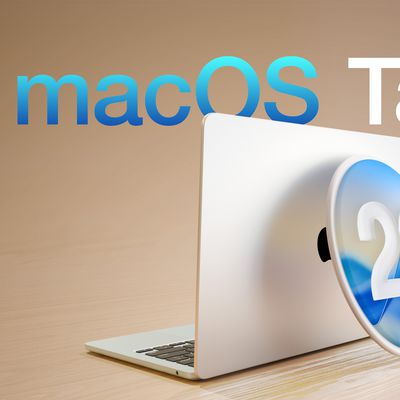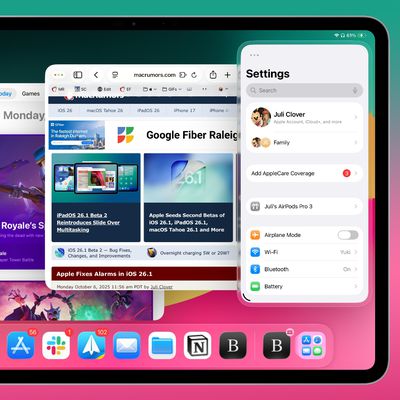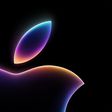 In 1996, just before Steve Jobs returned to Apple and made it the business-school case-study success story it is today, the biggest thing in Jobs' life was Pixar, which had recently launched Toy Story. He also had NeXT, which wasn't the world-changing computer company Jobs wished it would be.
In 1996, just before Steve Jobs returned to Apple and made it the business-school case-study success story it is today, the biggest thing in Jobs' life was Pixar, which had recently launched Toy Story. He also had NeXT, which wasn't the world-changing computer company Jobs wished it would be.
Jobs appeared on PBS' Wall $treet Week program with Louis Rukeyser who first asked him about Pixar and then asked Jobs what went wrong at Apple.
Oh gosh. You know I haven't been there in a long time. My perception may not be complete. But from the way I see it, Apple was a company that was based on innovation. When I left Apple ten years ago, we were ten years ahead of anybody else. It took Microsoft ten years to copy Windows.
The problem was that Apple stood still. Even though it invested cumulatively billions in R&D, the output has not been there. People have caught up with it, and its differentiation has eroded, in particular with respect to Microsoft.
And so the way out for Apple -- and I think Apple still has a future; there are some awfully good people there and there is tremendous brand loyalty to that company -- I think the way out is not to slash and burn, it's to innovate. That's how Apple got to its glory, and that's how Apple could return to it.
In the interview, Steve Jobs, always the marketer, talks up Pixar's Toy Story CD-ROMs as "dynamite" and says they will "set a new benchmark" for what CD-ROMs could be.
Jobs' performance speaks for itself. Disney bought Pixar for $7.4 billion in stock, which made Jobs the largest shareholder in Disney and gave him a spot on the Disney board.
Apple is now the most valuable company in the world, and its stock price just today hit an all-time high of $411.50, valuing the company at more than $380 billion.
























Top Rated Comments
"Differentiation has eroded."
This is such an important concept.
Who is John Galt? Answer: He's Steve Jobs.
I remember, I used to talk to friends in college about this very question: If given the chance, would you have traded your life for John Lennon's? If you were John Lennon, you'd get to be the lead singer of The Beatles, have zillions of dollars, have a crazy rock and roll lifestyle complete with all of the sex, drugs and fame, but you'd have to be dead at 40. On the other hand, as yourself, you may live to be in your 80s, get to see your kids and grandchildren grow up, and lead a fruitful life, but probably not a very exciting or significant one (and by significant, I mean in terms of world impact...like John Lennon or Steve Jobs, I do not mean significant to those close to you).
As my username implies, I am now a doctor -- primary care doctor, to be more precise. And I will tell you, there is something to seeing some of these older patients who have 6 children, 15 grandchildren and 12 great grandchildren. They are patriarchs and matriarchs in their families, and those families are all that matter to most of them when they're older. On the other hand, they have a lot of ailments, they're in and out of hospitals frequently, and most of them say the "golden years" is a myth and I should enjoy my life while I'm young.
The bottom line is that while most of us strive to live longer and healthier lives, NONE of us succeed indefinitely in doing that. We all die, just some sooner than others. So, what makes for a blessed life? I believe it's reaching congruence between what our goals are and what we actually achieve. If my goal is to live to be the patriarch at the Thanksgiving table when I'm 85, then I wouldn't consider Steve Jobs' life a blessing. But, if his goal was to "change the world," than I think Steve Jobs has been blessed.
Think about his quotes in the past. "Do you want to sell sugar water the rest of your life or do you want to change the world?" Or, think about Apple's marketing and advertising, like the "Think Different" campaign. Or, just think about what he says in the interview in the top of this thread. He considers INNOVATION a blessing, and while I'm sure he'd give almost anything to cure his cancer right now, I don't think he has regrets about the way his life has turned out, unlike MANY people I know and see every day.
That's when he started on his $1 annual salary.